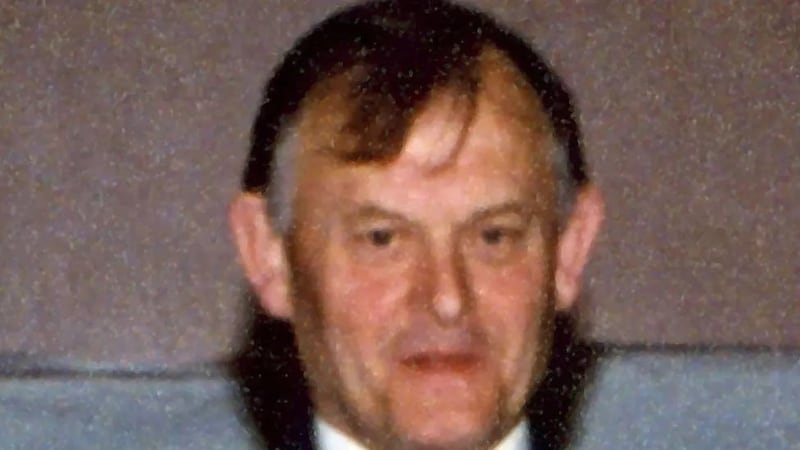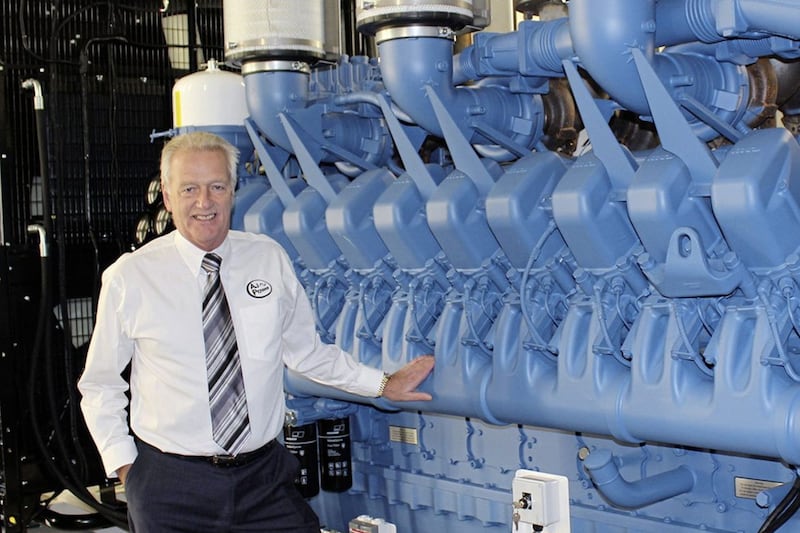The Foreign Secretary has set out her intention to bring forward legislation within weeks scrapping parts of the post-Brexit deal on Northern Ireland.
Liz Truss announced the UK Government’s intention to introduce legislation “in the coming weeks to make changes in the protocol”.
The Government remains “open” to a “negotiated solution” but the “urgency” of the situation means “we can’t afford to delay any longer”, Ms Truss claimed.
She told the Commons: “As the Prime Minister said, our shared objective has to be to find a solution that commands the broadest possible cross-community support for years to come and protect the Belfast Good Friday Agreement in all its dimensions.
“That is why I am announcing our intention to introduce legislation in the coming weeks to make changes in the protocol.
“Our preference remains the negotiated solution with the EU. And in parallel with the legislation being introduced, we remain open to further talks if we can achieve the same outcome through negotiated settlement.”
Speaking in Commons Ian Paisley says that “ If they keep the Protocol - power sharing is never coming back”.
— Stephen Walker (@StepWalkTV) May 17, 2022
Ms Truss told the Commons: “This is not about scrapping the protocol.
“Our aim is to deliver on the protocol’s objectives.
“We will cement those provisions which are working in the protocol, including the common travel area, the single electricity market and north-south co-operation, whilst fixing those elements that aren’t, on the movement of goods, goods regulation, VAT, subsidy control, and governance.”
She said she has invited EU Commission vice-president Maros Sefcovic to a meeting of the withdrawal agreement joint committee in London “to discuss this as soon as possible”.
Ms Truss said the Good Friday Agreement is “under strain”, adding: “Regrettably, the Northern Ireland Executive has not been fully functioning since early February.
“This is because the Northern Ireland Protocol does not have the support necessary in one part of the community in Northern Ireland. I would also note that all of Northern Ireland’s political parties agree on the need for changes to the protocol.”
Ms Truss said the practical problems include producers facing “onerous” restrictions due to sanitary and phytosanitary restrictions, adding in the Commons: “These practical problems have contributed to the sense that the east-west relationship has been undermined.
“Without resolving these and other issues we will not be able to re-establish the executive and preserve the hard-won progress sustained by the Belfast-Good Friday Agreement. We need to restore the balance in the agreement.”
"Respect for the rule of law runs deep in our Tory veins, I find it extraordinary that a Tory government needs to be reminded of that," says Northern Ireland affairs committee chair Conservative MP Simon Hoare
— BBC Politics (@BBCPolitics) May 17, 2022
Liz Truss insists "this bill is legal"https://t.co/XCYvX5NoSa pic.twitter.com/YBLUAfu7bx
The Foreign Secretary said: “The Bill will contain an explicit power to give effect to a new revised protocol if we can reach an accommodation that meets our goal of protecting the Belfast Good Friday agreement.
“We remain open to a negotiated solution but the urgency of the situation means we can’t afford to delay any longer. The UK has clear responsibilities as the sovereign government of Northern Ireland to ensure parity of esteem and the protection of economic rights.
“We are clear that the EU will not be negatively impacted in any way just as we have ensured the protection of the EU single market since the existence of the protocol. We must restore the primacy of the Belfast Good Friday Agreement in all of its dimensions as the basis of the restoration of the executive.
“We will do so through technical measures designed to achieve the stated objectives of the protocol, tailored to the reality of Northern Ireland.”
Truss said the protocol needs to be changed and that the EU’s proposals “would go backward from the situation we have today”.
She told the Commons: “Our proposed solution would meet both our and the EU’s original objectives for the protocol.
“It would address the frictions in east-west trade while protecting the EU’s single market and the Belfast Good Friday Agreement.
“The challenge is that this solution requires a change in the protocol itself as its current drafting prevents it from being implemented.
“But the EU’s mandate does not allow the protocol to be changed. That is why their current proposals are not able to address the fundamental concerns.
“In fact, it’s our assessment that they would go backward from the situation we have today with the standstill.”
DUP reaction
Power sharing in Northern Ireland will not be restored until an EU “power grab” to “crush” business in Northern Ireland is resolved, ministers have been warned.
DUP MP Ian Paisley (North Antrim) told the Commons about the paperwork faced by Marks & Spencer chairman and former Tory MP Archie Norman to do business on the island of Ireland.
Mr Paisley said: “His business in the Republic of Ireland to export goods has to fill in 700 pages.
“It has to do that within an eight-hour period, it has to do some of that wording in Latin to satisfy the European community, and it also has to do it in a certain type font or else it will not be allowed.
“It costs him an additional £30 million. He has said this morning on the radio that the EU has told him they would like the same procedures for his businesses in Northern Ireland.”
He added: “This is power grab. People talk about trade war. This is a trade war to crush business in Northern Ireland. Will the Foreign Secretary ensure that whenever she is speaking to the Cabinet, that they know clearly that if they keep the protocol, power sharing isn’t coming back?”
Foreign Secretary Liz Truss said the Government’s proposed new Bill would “deal with the bureaucracy that we are seeing”, adding the Government was “open” to talks over a “negotiated settlement” in the meantime.
Jeffrey Donaldson welcomes Liz Truss' statement
Leader @J_Donaldson_MP welcomes the Government's statement outlining its plans to introduce legislation to change the Protocol, but says that words are not enough, decisive action is needed, and soon. pic.twitter.com/vGG3x5JqE6
— DUP (@duponline) May 17, 2022
DUP leader Sir Jeffrey Donaldson told the Commons: “The statement today is a welcome if overdue step that is a significant move towards addressing the problems created by the protocol and getting power-sharing based upon a cross-community consensus up and running again.
“Therefore, we hope to see progress on a bill in order to deal with these matters in days and weeks, not months. As the legislation progresses we will take a graduated and cautious approach.
“We want to see the Irish Sea border removed and the Government honouring its commitment in the New Decade, New Approach agreement to protect Northern Ireland’s place in the UK internal market. The statement today indicates this will be covered in the legislation.”
He reiterated that he wants to see the political institutions “possibly functioning as soon as possible”, but said “to restore unionist confidence decisive action is now needed in the form of legislation to repair the harm done by the protocol”.
He called for “sensible arrangements” and said: “The words today are a good start. But the Foreign Secretary will know that it is actions that speak louder than words. I welcome her commitment to such decisive action in this statement.”
Foreign Secretary Liz Truss, responding to DUP leader Sir Jeffrey Donaldson in the Commons, said: “I think it’s vitally important to restore the primacy of the Belfast Good Friday Agreement which provided for power sharing in Northern Ireland to ensure we have the consent of all communities.
“It is the Government’s priority above all else to make sure that we protect peace and stability in Northern Ireland.”
SDLP reaction
Social Democratic and Labour Party (SDLP) leader Colum Eastwood claimed the Foreign Secretary has confirmed “she is going to against the majority” of citizens in Northern Ireland who support the protocol.
He said: “What we’ve heard from this Government today is absolutely astonishing.
“So, this morning, the Government announced that they are going to ride roughshod over the wishes of victims in Northern Ireland by ripping up an international agreement called the Stormont House Agreement.
“Now, the Foreign Secretary has confirmed that she’s going to go against the majority, despite what she might say, the majority of citizens in Northern Ireland who support the protocol, by ripping up an international agreement called the withdrawal agreement.
“It’s a very, very simple question despite what some people … they might not want to listen to the majority of people in Northern Ireland. It’s a very simple question: how can any international partner or how can any citizen in the north of Ireland ever trust this Government again?”
Liz Truss replied: “An overwhelming proportion of people in Northern Ireland, 78%, agreed that the protocol needs to change in polling conducted in December 2021.
“It is simply not true to say a majority of people in Northern Ireland support the protocol.
“As the honourable gentleman knows, the Belfast Good Friday Agreement is based on power-sharing, is based on esteem for all communities. What we want to find ideally with the EU is a solution that works for all the communities in Northern Ireland.”
Labour reaction
Future UK trade deals could be damaged by any threats to interfere with Northern Ireland’s post-Brexit trade arrangements, Labour said.
Shadow Foreign Office minister Stephen Doughty said: “Britain should be a country that keeps its word.
“The rest of the world is looking at us and wondering if we are a country that they want to do business with.
“When we seek to negotiate new deals abroad, does the Government want to make other countries question whether we will keep our end of the bargain?
“There are wide-ranging and damaging repercussions undermining our ability to hold others to account for their own commitments, when we should, for example, be pulling together in support of Ukraine, not fuelling divisions with our European allies.”
He later asked: “Will they set out clearly to the House why this doesn’t break international law?”
Responding to the question from Labour, Liz Truss said: “It is our responsibility as a Government of the United Kingdom to restore peace, to restore the primacy of the Belfast Good Friday Agreement, to get the executive up and running.
“In answer to his question about legality, we are very clear that this is legal in international law and we will be setting out our legal position in due course.”
Conservative MP Simon Hoare, chairman of the Northern Ireland Affairs Committee, questioned if the UK Government is committed to honouring the rule of law via its protocol plans.
He began by quoting Margaret Thatcher’s commitment to the rule of law, adding: “Respect for the rule of law runs deep in our Tory veins. I find it extraordinary that a Tory government needs to be reminded of that.
“Could (Liz Truss) assure me that support for and honouring of the rule of law is what she and the Government is committed to?”
Ms Truss replied: “I can assure (Mr Hoare) that we are committed to upholding the rule of law, we’re clear that this Bill is legal in international law and we will set out the legal position in due course.”
Conservative former Northern Ireland secretary Theresa Villiers said: “The EU’s approach to the protocol is so unreasonable that it’s actually banning the movement of tree saplings from Great Britain to Northern Ireland for planting for the Queen’s Platinum Jubilee.
“Will the Foreign Secretary promise the new enhanced green channel will not just disapply customs rules, it’ll also disapply these unreasonable and excessive SPS rules on plants and foods?”
Liz Truss said the proposals will ensure such goods can move freely through the green lane into Northern Ireland as part of a trusted trader scheme, adding: “Any company violating that scheme and not following the rules, there will be enforcement to make sure we protect the EU single market.”
SNP reaction
SNP Northern Ireland spokesman Richard Thomson said his party recognised the “hurt and upset” caused to many by the protocol, but warned the arrangement has consequences for the rest of the UK beyond Northern Ireland.
He called for a negotiated settlement, adding: “Threats of unilateral legislative action by this Government to override its own deal are very unlikely to be taken seriously in Belfast, they won’t be taken seriously in Brussels, and there’s absolutely no reason why it should be taken seriously in this place either.”
Conservative MP Sir William Cash, who chairs the European Scrutiny Committee, commended the Foreign Secretary for her “excellent statement”.
He said section 38 of the Withdrawal Agreement Act “enables her bill to use our sovereignty, not withstanding the protocol”.
He asked for assurances that the European court and law do not displace UK law, adding:”I urge her to strongly take the advice of the Attorney General on matters of international law.”
Liz Truss said: “On the subject of the ECJ, our solution is to have an arbitration mechanism in place, like we have in the TCA, rather than having the ECJ as the final arbiter.”
Boris Johnson reacts
On a visit to Paddington station, west London, Prime Minister Boris Johnson said: “We need to address the problems with the (Northern Ireland) Protocol.
“What that actually involves is getting rid of some relatively minor barriers to trade.
“I think there are good, common sense, pragmatic solutions. We need to work with our EU friends to achieve that.”
Boris Johnson said: “I think that it’s important that all political parties who believe in the government of Northern Ireland get back round the table and get Stormont up and running.
“Northern Ireland has got amazing opportunity now. Parts of the Northern Irish economy are going really, really well.
“What they need is leadership. They need their politicians to focus on the things that matter to the people of Northern Ireland.”
Maros Sefcovic reacts
European Commission vice-president Maros Sefcovic, who has been involved in negotiations with Foreign Secretary Liz Truss about the Northern Ireland Protocol, criticised her plan and warned that Brussels could retaliate.
He said: “Should the UK decide to move ahead with a bill disapplying constitutive elements of the protocol as announced today by the UK Government, the EU will need to respond with all measures at its disposal.
“Our overarching objective is to find joint solutions within the framework of the protocol. That is the way to ensure legal certainty and predictability for people and businesses in Northern Ireland.
“With political will and commitment, practical issues arising from the implementation of the protocol in Northern Ireland can be resolved.
“The European Commission stands ready to continue playing its part, as it has from the outset.”







